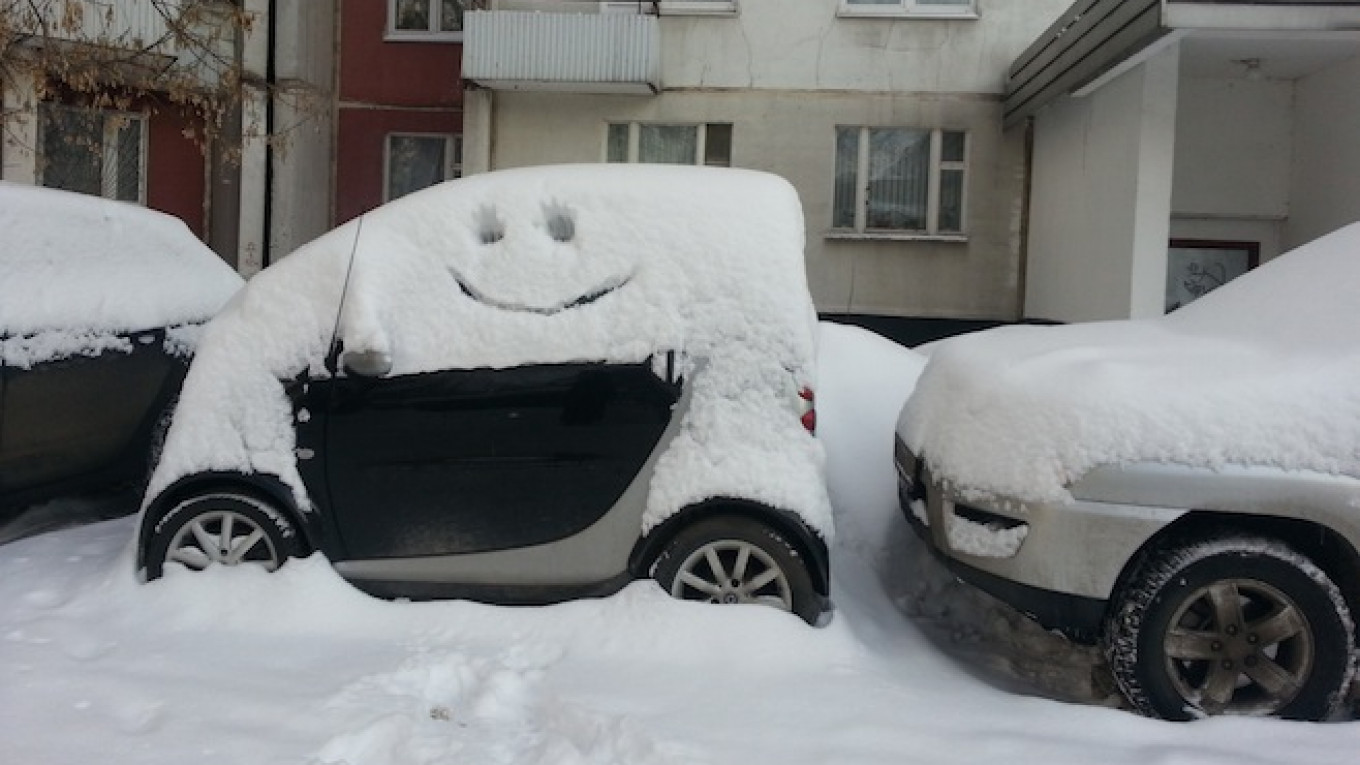Russians were much happier by the end of 2014 than a year earlier, according to a recent survey by WIN/Gallup International, which showed the country's "happiness index" more than doubling over the past year.
The index — which is obtained by subtracting the percentage of respondents who said they were unhappy with those who considered themselves to lead happy lives —? reached 59 percentage points in late 2014, compared to only 24 percentage points a year earlier, according to a report released Tuesday by ROMIR research group, which conducted the WIN/Gallup association's poll in Russia.
The pollster suggested the spike in Russians' happiness may have been connected to a series of events that boosted many people's spirits last year — such as the Winter Olympics in Sochi and the annexation of Crimea from Ukraine, accompanied by a "general rise of patriotism," a report on the pollster's website said.
The number of Russians who called themselves happy reached 61 percent in late 2014, compared to 34 percent a year earlier, while the number of those who saw themselves as unhappy declined to a mere 2 percent from 10 percent over the same period, according to ROMIR's report. The remaining respondents described themselves as neither happy nor unhappy.
Russia still falls slightly behind the world's overall happiness index, which reached 64 percentage points, according to WIN/Gallup International.
The happiest country in the world is Fiji, where 93 percent of people consider themselves happy, with on the opposite side of the spectrum Iraq, where only 31 percent of people said they were happy, according to the WIN/Gallup report.
The End of Year Survey has been conducted annually since 1977, this year polling the views of 64,002 people from 65 countries across the globe.
A Message from The Moscow Times:
Dear readers,
We are facing unprecedented challenges. Russia's Prosecutor General's Office has designated The Moscow Times as an "undesirable" organization, criminalizing our work and putting our staff at risk of prosecution. This follows our earlier unjust labeling as a "foreign agent."
These actions are direct attempts to silence independent journalism in Russia. The authorities claim our work "discredits the decisions of the Russian leadership." We see things differently: we strive to provide accurate, unbiased reporting on Russia.
We, the journalists of The Moscow Times, refuse to be silenced. But to continue our work, we need your help.
Your support, no matter how small, makes a world of difference. If you can, please support us monthly starting from just $2. It's quick to set up, and every contribution makes a significant impact.
By supporting The Moscow Times, you're defending open, independent journalism in the face of repression. Thank you for standing with us.
Remind me later.


